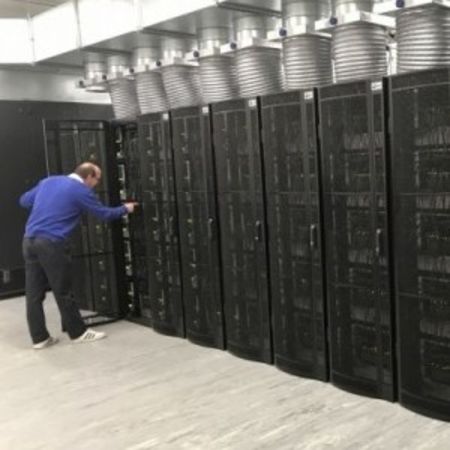The world’s largest supercomputer designed to work like a human brain has been switched on for the first time.
After it was fitted with its landmark one-millionth processor core, the ‘Spiking Neural Network Architecture’ (SpiNNaker) was turned on at The University of Manchester’s School of Computer Science.
SpiNNaker can process more than 200 million actions per second, modelling more biological neurons than any other existing machine, with each of its chips having 100 million transistors.
SpiNNaker is the brainchild of Steve Furber, Professor of Computer Engineering at The University of Manchester. Describing the significance of the machine, Furber said SpiNNaker revolutionised the way computers work. “We’ve essentially created a machine that works more like a brain than a traditional computer, which is extremely exciting,” he said.
See also: Machine learning detecting early brain tumour presence
Biological neurons are nervous system brain cells that communicate by emitting ‘spikes’ of pure electro-chemical energy. Neuromorphic computing uses large-scale computer systems containing electronic circuits to mimic these spikes in a machine. What makes SpiNNaker unique is its method of communicating. Unlike most computers, it mimics the communication of the brain by sending billions of small packages of information to multiple destinations.
How will SpiNNaker be used? The supercomputer can help neuroscientists develop a better understanding of how the human brain works through real-time simulations. This could mean huge neurological breakthroughs for pharmaceutical testing for example.
The objective for the project is a million cores in a single computer for real time brain modelling applications. “We have now achieved it, which is fantastic,” said Furber.
SpiNNaker has also been linked to robotics through work with real-time visual data for navigation.
The project has taken 20 years and £15million in funding to complete.
Source: University of Manchester
Image credit:
University of Manchester























